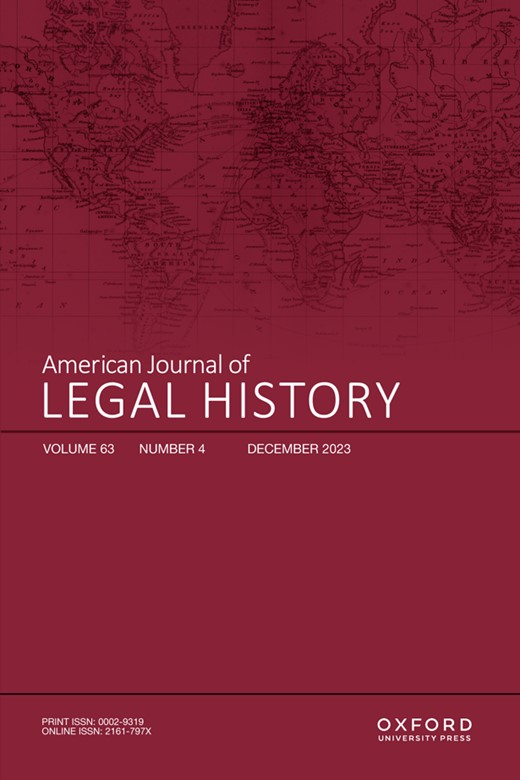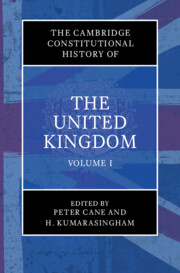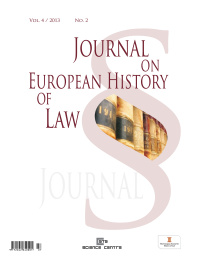Société d'histoire du droit et
des institutions
des pays flamands, picards et
wallons
(fondée
à Lille en 1929)
Journées
internationales d'histoire du droit et des institutions
DINANT (Belgique), les 10
et 11 mai 2024
Les journées
internationales d'histoire du droit et des institutions 2024, co-organisées par
l’Université de Namur, l’Ecole Royale Militaire belge, l’Université catholique
de Louvain (Saint-Louis) et la Vrije Universiteit Brussel, auront lieu cette
année à Dinant (Belgique), les 10 et 11
mai 2024, et ont pour thème général :
« Droit et présence militaire ».
Ce thème couvre de nombreuses
questions, tant historiques que juridiques, de la coexistence entre civils et
militaires, d'occupation militaire, tout comme de justice extraordinaire
(justice militaire), de droit de la guerre, ou encore de statuts de
militaires ou des zones militaires, ...
Un programme provisoire
des journées est joint en annexe.
Les séances de
travail se dérouleront dans la citadelle de Dinant. Les lunchs seront
servis sur place, à la citadelle.
Les participants et les
personnes qui les accompagnent auront un accès gratuit au téléphérique
de la ville vers la citadelle.
Le vendredi, après les sessions
du congrès, nous prévoyons une visite de la citadelle avec, si le temps le
permet, un verre de l’amitié en profitant du magnifique panorama sur la ville.
Le samedi, après l’assemblée
générale clôturant le congrès, nous envisageons une visite guidée du château de
Freÿr (environ 10 minutes en voiture depuis Dinant).
Le traditionnel dîner
de la Société se déroulera le vendredi soir dans le restaurant « Le jardin
de Fiorine », 3, rue Georges Cousot (à environ 10 minutes à pied depuis le
pied du rocher de la citadelle).
Il est nécessaire de s’inscrire préalablement
pour les lunchs et pour le dîner, le nombre de convives à table étant limité. Il faut aussi s’inscrire préalablement pour les
visites afin de réserver les guides.
Les frais d'inscription au congrès s'élèvent à 25 euros par participant et comprennent
la documentation et les pauses-café ; les lunchs du vendredi et du samedi midi
à 25 euros chacun (par personne) ; la participation
au dîner du vendredi soir à 50 euros par
personne.
La somme totale est
à verser au moment de l’inscription, par virement bancaire sur le compte de la
Société n° IBAN BE77 7370 5007 1342 -
BIC KREDBEBB (au nom de S.
HORVAT).
Toute inscription donne lieu à l’obligation de
paiement des frais se rapportant à l’inscription, même si la personne inscrite
ne participe pas à l’activité en question.
L’inscription se fait en envoyant le formulaire
d’inscription avant le 1er
mai 2024 par courriel à : guido.lambeets@mil.be.
Le bureau de la Société,
Le Président, Le
Secrétaire Général,
Tanguy Le Marc’hadour Christian PFISTER
Les Vice-Présidents, Le Trésorier,
Stanislas HORVAT Pascal HEPNER
Michael MILO
Société d'histoire du droit et
des institutions
des pays flamands, picards et
wallons
Internationale
rechtshistorische dagen
DINANT (België), 10-11
mei 2024
De internationale Rechtshistorische dagen 2024, georganiseerd
door de Université de Namur, de Belgische Koninklijke Militaire School, de Université
catholique de Louvain (Saint-Louis) en de Vrije Universiteit Brussel, zullen op
10 en 11 mei 2024 in Dinant (België) doorgaan. Het centrale thema is:
“Droit et présence militaire” (“Recht en militaire aanwezigheid”).
Dit thema dekt talrijke aspecten,
zowel historische als juridische, van het samenleven van burgers en militairen, van militaire bezetting, van buitengewone rechtspraak (militaire
rechtbanken), van oorlogsrecht, van het statuut
van militairen of van militaire zones, enz.
Het voorlopige
programma gaat als bijlage.
De werksessies en
de lunches gaan door in de citadel van Dinant.
De deelnemers en hun partners
krijgen gratis toegang voor de kabellift van de stad naar de citadel.
Op vrijdag voorzien we na de congressessies een bezoek
aan de citadel met, als het weer het toelaat, een afsluitende drink met een
prachtig uitzicht op de stad.
Op zaterdag overwegen we, na de algemene vergadering
die het congres afrondt, een geleid bezoek aan het kasteel van Freÿr (op
ongeveer 10 minuten rijden vanuit Dinant).
Het traditionele diner
van de Société zal op vrijdagavond
plaatsvinden in het restaurant « Le jardin de Fiorine », rue Georges
Cousot 3 (op ongeveer 10 minuten te voet van aan de voet van de rots van de
citadel).
Voor de lunches en voor het diner moet vooraf
ingeschreven worden aangezien het aantal plaatsen aan tafel beperkt is. Voor de
bezoeken moet eveneens vooraf ingeschreven worden aangezien de gidsen
moeten worden aangevraagd.
De inschrijving voor het congres bedraagt 25 euro per deelnemer (documentatie en
koffiepauzes); voor de lunches van vrijdag en zaterdag 25 euro per persoon per dag; voor het diner van vrijdagavond 50 euro per persoon.
Het totale bedrag moet
bij de inschrijving via overschrijving worden gestort op de rekening van de Société IBAN BE77 7370 5007 1342 - BIC KREDBEBB op naam van S. HORVAT.
Door zich in te schrijven verbindt de deelnemer zich tot
de betaling van de corresponderende kost, zelfs indien de ingeschreven
persoon niet aan de voorziene activiteit deelneemt.
De inschrijving gebeurt door het
inschrijvingsformulier vóór 1 mei 2024 te
sturen naar guido.lambeets@mil.be.
Het bureau van de Société,
De Voorzitter, De Secretaris-generaal,
Tanguy Le Marc’hadour Christian PFISTER
De Ondervoorzitters, De Penningmeester,
Stanislas HORVAT Pascal HEPNER
Michael MILO
International Days of the
Society for
Legal and Institutional History
of Flanders,
Picardy and Wallonia
DINANT (Belgium), May 10th & 11th,
2024
The "International days" 2024 of the Society for Legal and Institutional History
of Flanders, Picardy and Wallonia, co-organized by the University of Namur, the Belgian
Royal Military Academy, the Université catholique de Louvain (Saint-Louis) and the
Vrije Universiteit Brussel, will be held on
May 10th and 11th 2024 in Dinant.
The theme of the conference is: “Droit
et présence militaire” (“Law
& Military Presence”).
This theme incorporates numerous historic and legal
aspects of living together by military and civilians, of military occupation,
of special jurisdiction (military courts), of the law
of war, or the statute of military personnel or military zones, or many other
questions.
The provisional programme can be
found in attachment.
The lectures will be held in the citadel of Dinant. Lunches on
Friday and on Saturday will also be served in situ.
Participants and accompanying persons will have free
access to the cable lift between the town and the citadel.
On Friday, after the lectures, the participants can
attend a tour of the citadel and, if the weather is fine, a final drink with a
marvellous view on the town. On Saturday, after the general assembly at the end
of the congress, a guided tour of the castle in Freÿr is planned (approx. 10 minutes
by car from Dinant).
The
traditional dinner of the Society will be held on Friday evening in restaurant
“Le jardin
de Fiorine ”, rue Georges Cousot 3 (approx. 10
minutes walk from the foot of the rock where is located the citadel).
The lunches and dinner require previous registration because
there is a limited number of seats. The visits (citadel and castle) also require
previous registration as the guides need to be reserved.
The registration fee for the congress amounts to 25 euro p.p. (for documentation and
coffee); the sandwich-lunch on Friday and the cold buffet on Saturday to 25 euro p.p. each; dinner on Friday
evening to 50 euro per person.
The total amount should be paid at the same moment as
the registration on the bank account of the Society
IBAN BE77 7370 5007 1342 - BIC KREDBEBB
- Account holder S. HORVAT
Registration leads to the obligation to pay the foreseen cost, even if the participant does
not attend the activity for which he/she registered.
Participants have to register by sending the registration form before May 1st, 2024 by e-mail
to guido.lambeets@mil.be.
The Board,
The
President, The
Secretary General,
Tanguy LE MARC’HADOUR
Christian PFISTER
The Vicepresidents, The Treasurer,
Stanislas HORVAT Pascal HEPNER
Michael MILO
Société d'histoire du droit et des
institutions
des pays flamands, picards et wallons
Journées
internationales d'histoire du droit et des institutions
« Droit et
présence militaire », Citadelle de Dinant, les 10 et 11 mai 2024
Programme du vendredi
10 mai
10h15 Axel TIXHON (Université de Namur), Stanislas HORVAT (Ecole Royale
Militaire & Vrije Universiteit Brussel, Vice-Président de la Société
d'histoire du droit et des institutions des pays flamands, picards et wallons),
Eric BOUSMAR
(UCLouvain Saint Louis Bruxelles) et Tanguy
LE MARCH’ADOUR (Université de Lille, Président de la Société d'histoire du
droit et des institutions des pays flamands, picards et wallons) : Introduction aux Journées
10h25 Antoine LECLÈRE (Université de
Liège & Vrije Universiteit Brussel), L’intervention
militaire prussienne dans la principauté de Liège (1790) : Entre exécution des
sentences impériales et médiation bienveillante
10h50 Fred STEVENS (Katholieke Universiteit
Leuven), La Milice Nationale néerlandaise et le camp militaire
de Ravels (Turnhout). 1820-1829
11h15 Café et administration
11h45 Pierre BODINEAU (ém. Université de
Bourgogne, Société pour l'histoire du droit et des institutions des anciens
pays bourguignons, comtois et romands), La
contribution de la province de Bourgogne au service de la Marine Royale à la
fin de l'Ancien Régime
12h10 Xavier FRANCOIS-LECLANCHÉ (docteur en
histoire du droit), La justice dans le département de l'Yonne (France) sous
l'occupation militaire autrichienne (1814)
12h35 François-Xavier GERVASONI (Université
de Versailles Saint-Quentin-en-Yvelines), Les
prisons militaires en
Franche-Comté aux XIXe et XXe siècles
13h00 Ambre JARASSIER (Université de
Nantes), La conscription napoléonienne : une violation de la
volonté. La conscription nationale par l’arme du sénatus-consulte
13h30 Lunch
(sur place)
14h45 Astrid DONIAS (Université Grenoble
Alpes), L'impossible répression des
“Pourvoyeurs de Prussiens” pour intelligence avec l'ennemi (1870-1875)
15h10 Eric BOUSMAR
(UCLouvain), Christophe MASSON
(FNRS/ULiège) & Quentin VERREYCKEN (FNRS/UCLouvain),
L’origine du crime de guerre au XVe
siècle ? Pour une étude comparée de la régulation des atrocités militaires
contre les populations, au seuil de la première modernité (Italie, Pays-Bas
bourguignons et Rhénanie)
15h35 Nicolas
BERNARD (Cour constitutionnelle belge & UCLouvain Saint Louis
Bruxelles), L’influence de la guerre dans la production des sources
normatives
16h00 Antoine RENGLET (FNRS/UCLouvain), De
héros à paria. Itinéraire d’un commissaire de la police de Bruxelles entre
occupation et libération (1935-1961)
16h25 Stanislas HORVAT (Ecole Royale
Militaire & Vrije Universiteit Brussel), Le droit de propriété du rocher de la Citadelle de Dinant
17h00 Visite de la Citadelle sous la direction de Axel TIXHON
19h30 Dîner
de la Société au restaurant
« Le Jardin de Fiorine » (rue Georges Cousot 3) –inscription préalable
requise
Journées internationales d'histoire du droit et des
institutions
« Droit et
présence militaire », Citadelle de Dinant, les 10 et 11 mai 2023
Programme du samedi
11 mai
10h15 Benedict
VANLANDUYT (KULeuven-Campus Kortrijk), The role of 'auxiliaries' during the Austrian Succession War (communication
en anglais)
10h40 Alain RAHIER (UCLouvain & Sorbonne
Université), Les forçats militaires du
bagne d’Anvers sous le Premier Empire : une catégorie particulière de détenus ?
11h05 Café
et administration
11h30 Hugues RICHARD (ém. Université de Bourgogne,
Société pour l'histoire du droit et des institutions des anciens pays
bourguignons, comtois et romands), Les servitudes militaires (au sens
foncier) en France
11h55 Ariane BOUSQUET (Université du Québec à Montréal & Université de Tartu), Les bataillons de destruction soviétiques :
répercussions sur les rapports sociaux et la violence dans la République
socialiste soviétique estonienne d’après-guerre, 1944-1956
12h20 Sebastiaan
VANDENBOGAERDE (Université de Gand), « Garde tes amis proches, mais tes
ennemis encore plus ». Le cantonnement des soldats dans la Zone d’Etape
(1914-1918)
12h45 Florent VERFAILLIE (War
Heritage Institute), Des sujets de droit
comme les autres ? Pour une définition pénale de la résistance à
l’occupant allemand (1914-1918)
13h10 Lunch (sur place)
14h30 Axel TIXHON (Université
de Namur), Des francs-tireurs à Dinant en août 1914 ?
Un siècle de polémiques
14h55 Tanguy
LE MARCH’ADOUR (Président de la Société), Conclusions et clôture des Journées internationales d'histoire du droit
et des institutions et Assemblée
générale de la Société
15h30 fin prévue et déplacement (10 minutes) en
véhicules personnels vers le château de Freÿr
16h00 Visite
au Château de Freÿr –– inscription préalable requise
17h00 fin approximative de la visite
Société d'histoire du droit et des
institutions
des pays flamands, picards et wallons
Journées internationales d'histoire du droit et des
institutions
DINANT, 10-11/05/2024
FORMULAIRE D'INSCRIPTION / REGISTRATION FORM
À
envoyer avant le 1er mai 2024
par courriel à : guido.lambeets@mil.be
To be sent before
May 1st, 2024 by e-mail at : guido.lambeets@mil.be
Monsieur/Mr
– Madame/Mrs : ………………………………………………………………..
Adresse / Address : ...………………………………………………………………………
…………………………………………………………………...........
Portable / Cell
phone: …………………………………………………………………..……..
E-mail : ……………………………………………..
1° Droit d’inscription congrès
/ Registration fee Congress : …… x 25 € Total : .…. €
2° Lunch vendredi / Lunch Friday 10-05-2024
Nombre de
personnes / Number of persons : …… x 25
€ Total : .…. €
3° Lunch samedi / Lunch Saturday 11-05-2024
Nombre de personnes / Number
of persons : …… x 25
€ Total : .…. €
4° Dîner vendredi soir / Dinner Friday evening (nombre limité / limited number)
Nombre de personnes / Number of persons : …… x 50
€ Total : .…. €
5° Total à payer / Total amount to be paid: ..……... €
6° Visites / Guided tours :
Citadelle le
vendredi 10 mai / Citadel on Friday 11
May :
Participera / Will
participate : OUI/YES
– NON/NO
Nombre de personnes / Number
of persons : ……
Château de Freÿr le
samedi 11 mai / Freÿr Castle on Saturday
11 May :
Participera / Will
participate : OUI/YES
– NON/NO
Nombre de personnes / Number of persons :
……
Payements au compte bancaire de
la SOCIETE/ Payments on bank account of
the SOCIETY :
IBAN BE77 7370 5007 1342 - BIC KREDBEBB
Au nom de / Account holder : S. HORVAT
Attention
: Toute inscription donne lieu à l’obligation de paiement des frais
Be aware that registration
leads to the obligation to pay the foreseen cost










_-_Museum_Boijmans_Van_Beuningen.jpg)